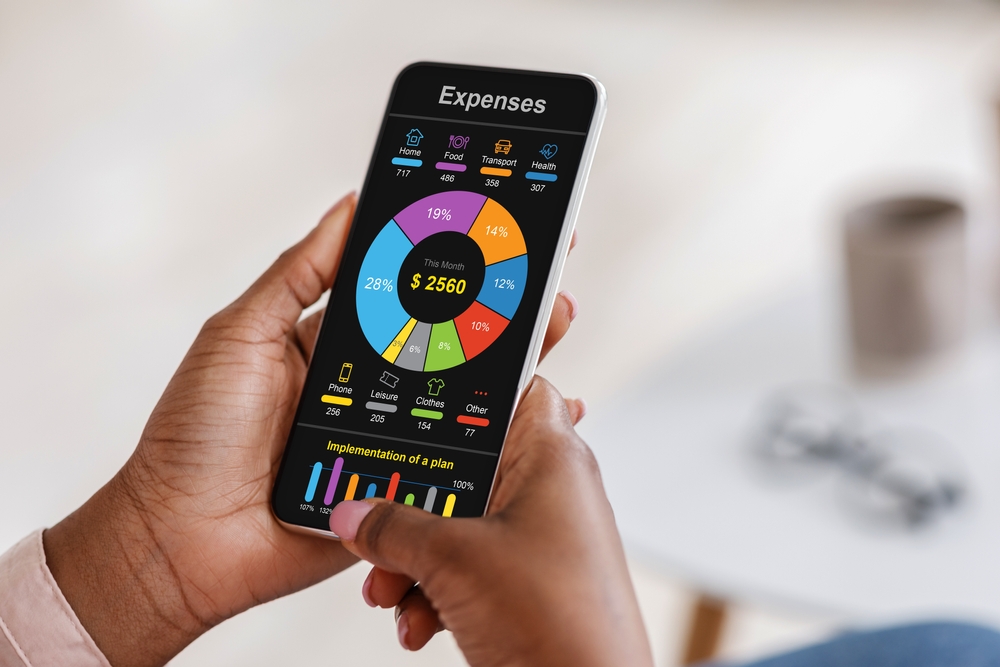Navigating through life can be filled with challenges that money simply cannot solve. While wealth can certainly ease many burdens, there are daily struggles that remain foreign to those who’ve never had to worry about their bank balance. Here’s a look at 13 everyday struggles that wealthy people will never fully grasp.
1. The Art Of Stretching Groceries

The average trip to the grocery store for you might involve scouring the aisles for deals, comparing unit prices, and occasionally putting items back when the total starts to creep up. For many, it’s a delicate balancing act of nutrition, budget, and taste. However, for those who never worry about checking a price tag, this tightrope walk remains a mystery. According to a report by the USDA, nearly 11% of households faced food insecurity in 2020, highlighting a struggle that eludes the affluent. For the wealthy, the concept of having to choose between essentials is often unheard of.
Beyond just the purchase, the strategy extends to meal planning. Planning meals around what’s on sale or what can stretch the furthest is a skill honed over time. Leftovers transform into new meals, and nothing goes to waste. It’s a testament to creativity and resourcefulness that’s often overlooked. For someone who’s financially secure, meal planning often revolves around culinary preferences, not financial constraints.
2. The Dread Of Unexpected Expenses

For most, the surprise of an unexpected bill can be an anxiety-inducing event. Whether it’s a sudden car repair or an unplanned medical expense, these surprises can throw a carefully planned budget into disarray. It’s not just about finding the funds; it’s about the stress and the financial juggling required to make everything else work. When you’re living paycheck to paycheck, there’s often no cushion to fall back on.
Conversely, those with wealth simply write a check and move on. Unexpected expenses become mere inconveniences, not financial crises. There’s no scramble, no sleepless nights wondering how to make ends meet. The peace of mind that comes with financial security is something you can’t truly understand until you’ve lived without it. While everyone deals with unexpected events, the stakes are just different.
3. The Search For Affordable Housing

Finding affordable housing is a quest that many embark on with trepidation. As rents skyrocket, and home prices soar, securing a roof over your head can be a daunting challenge. This struggle often requires prioritizing location over quality or settling in less desirable areas to save on costs. According to a study by the Joint Center for Housing Studies of Harvard University, nearly half of renters were cost-burdened in 2020, meaning they spent over 30% of their income on housing.
For the affluent, the housing market is viewed with an entirely different lens. It’s about choice, luxury, and investment potential. The stress of finding a place within budget doesn’t exist. Instead, the decision revolves around aesthetics and amenities. The idea of compromising on comfort to meet financial constraints is a foreign concept.
4. The Juggle Of Multiple Jobs

It’s not uncommon to hold down more than one job to make ends meet. The days become a blur of clocking in and out, often with little time left for family or leisure. It’s a high-wire act of scheduling, transportation, and energy management, where there’s rarely a moment to breathe. This hustle is not just about ambition; it’s a necessity for survival.
Wealthy individuals, however, often choose their pursuits based on passion rather than necessity. If they work multiple jobs, it’s usually for personal fulfillment or entrepreneurial ambition. There’s no frantic dash from one job to the next, no calculating the cost of commuting each day. Instead of working to live, the focus is on living to work, with time to enjoy the fruits of their labor. The luxury of choice and leisure is something not everyone can afford.
5. The Not Having A Car Dilemma

For many, public transportation is a lifeline, albeit an imperfect one. Delays, overcrowding, and unpredictable schedules are part and parcel of the daily commute. The journey to work can often be a time-consuming and stressful affair, compounded by the need to plan meticulously to avoid being late. Dr. Jeff Brown, a transportation policy expert at Florida State University, emphasizes that reliable public transit is crucial for economic opportunity, yet it remains out of reach in many areas.
In contrast, the affluent often enjoy the comfort and convenience of private transportation. The fight against traffic is waged from behind the wheel of a luxury car or from the backseat of a chauffeured ride. For them, public transit is often an option, not a necessity. The daily grind of commuting remains a mystery, a distant concept that doesn’t intrude on their day-to-day lives. Their commute is often a time of relaxation or productivity, not angst.
6. The Burden Of Student Loans

Student loans are a shadow that lingers long after graduation for many. They hang over you like a financial cloud, dictating career choices and life plans. Repayments eat into budgets, and the debt can feel like an anchor holding back future dreams. It’s a pressure that influences everything from job choices to decisions about starting a family.
For those who never had to worry about financing their education, this burden is unimaginable. There’s a freedom in pursuing passions without the shackles of debt. Higher education becomes a journey of discovery rather than a financial gamble. The privilege of learning without the looming threat of repayment is a world of difference. It’s a stark contrast to the financial calculations that dictate so many educational choices for others.
7. The Absence Of A Safety Net

For many people, living without a safety net is a reality that shapes every decision. There’s no back-up plan, no financial cushion to fall back on in times of need. It means living on the edge, where even a minor setback can have significant repercussions. According to a study by the Federal Reserve, nearly 40% of Americans in 2018 reported they would struggle to cover a $400 emergency expense.
Those with financial security, however, have the luxury of a safety net woven from savings, investments, and family wealth. There’s a peace of mind knowing that a fall won’t be catastrophic, allowing for greater risk-taking and opportunity-seeking. Their decisions are not influenced by the fear of financial ruin. Instead, they can focus on long-term planning and wealth-building. The psychological freedom this brings is a privilege that many will never experience.
8. The Delicate Dance Of Budgeting

For many, budgeting is a finely-tuned skill that involves meticulous planning and constant vigilance. Every expense is tracked, every dollar accounted for, with little room for error. It requires discipline and sacrifice, often putting wants on hold to ensure needs are met. It’s a balancing act that demands attention and adjustment.
In contrast, those with abundant resources often bypass the need for strict budgeting. Financial decisions are less about necessity and more about preference. The luxury of purchasing without hesitation or consideration of cost is a stark contrast to the careful calculations many make daily. The freedom to spend without tracking every penny is a luxury not everyone can afford. It’s a difference that defines lifestyles and decision-making.
9. The Challenge Of Affordable Healthcare

Access to affordable healthcare is a hurdle that many people face. High premiums, deductibles, and out-of-pocket expenses can make seeking medical attention a financial burden. Decisions on whether to see a doctor are often weighed against the cost, leading to deferred care and potential health risks. This ongoing struggle is a reality for many navigating the healthcare landscape.
In contrast, those with wealth often enjoy access to top-tier medical care without concern for cost. Decisions about healthcare are based on preference and quality, not financial constraint. The ability to prioritize health without the worry of expense provides peace of mind and a proactive approach to well-being. For many, healthcare is a calculated choice, while for the wealthy, it’s a given. This disparity highlights the inequality in accessing basic health services.
10. The Stress Of Paycheck-To-Paycheck Living

Living from paycheck to paycheck is a reality for a significant portion of the population. It’s a constant cycle of earning and spending with little left over, creating a fragile balance that’s easily disrupted. Unexpected expenses or a delayed paycheck can lead to a financial domino effect. This stress can take a toll on mental and physical health, creating a vicious cycle.
For the wealthy, there’s a buffer that absorbs financial shocks. Their income exceeds their expenses, allowing for savings and investment. The pressure of stretching every dollar is absent, replaced by financial security and peace of mind. Their focus is on wealth growth rather than survival. This freedom allows for planning and foresight, rather than immediate crisis management.
11. The Balancing Of Work And Family Time

Balancing work demands with family commitments is a daily struggle for many. Long hours, multiple jobs, and commutes consume time that could be spent with loved ones. It’s a delicate balance that often leads to guilt and stress as you try to fulfill both roles. The struggle to be present at home while meeting professional obligations is a challenge that affects family dynamics.
For those with wealth, there’s often more flexibility and control over their schedules. The ability to delegate tasks, work remotely, or reduce hours allows for more family time. Financial security provides the luxury to prioritize family without sacrificing income. This balance is a privilege that many strive for but few achieve. The ability to be present without financial worry is a gift.
12. The Grind Of Climbing The Career Ladder

Climbing the career ladder often requires a mix of skill, opportunity, and a bit of luck. For many, it entails long hours, continuous education, and networking, all while maintaining current responsibilities. The climb can be steep and competitive, with progress often stymied by external factors beyond your control. It’s a journey fraught with challenges and setbacks.
For wealthy individuals, career advancement is often less about necessity and more about choice. The luxury of pursuing passion projects or starting a business without financial risk skews the playing field. Connections and resources often ease the climb, smoothing the way to success. The pressure to succeed is self-imposed rather than financially driven. This disparity in experience highlights the wide gap in professional opportunities.
13. The Struggle To Plan For Retirement On A Shoestring

For many, planning for retirement is a daunting task when funds are tight. The challenge is to save enough while managing current expenses, often requiring sacrifices in the present for security in the future. The uncertainty of future income, coupled with rising costs, makes this a formidable challenge. It’s a constant balancing act of saving and spending.
In contrast, those with wealth plan retirement with a focus on lifestyle choices rather than financial necessity. The aim is to maintain a standard of living, with little concern for financial constraints. Investments and assets provide a buffer against future uncertainties, allowing for a comfortable retirement. The stress of ensuring future financial security is largely absent. The ability to plan without financial worry is a privilege that shapes the retirement experience.
This article is for informational purposes only and should not be construed as financial advice. Consult a financial professional before making investment or other financial decisions. The author and publisher make no warranties of any kind.







